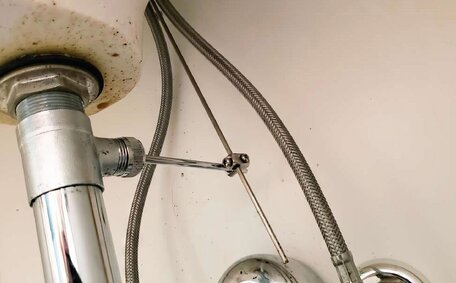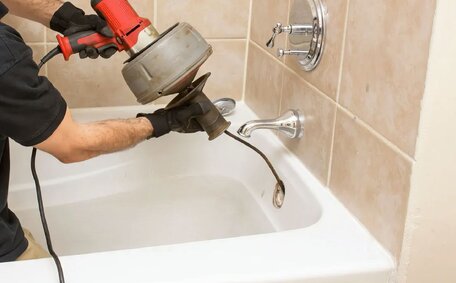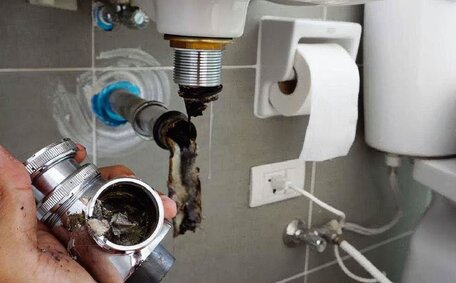Introduction to Solar Hot Water Systems
As energy costs continue rising in your area, more homeowners are considering renewable energy solutions like solar water heaters. Sans Souci’s favourable climate is perfect for utilising solar energy for water heating purposes.
This guide provides homeowners with the necessary insight to determine the viability of solar hot water systems as an investment.
We’ll assess the costs, potential savings on energy bills, performance, and environmental impact of solar hot water systems versus traditional gas-electric systems to assist readers in evaluating their alignment with budgetary and ecological objectives.
We’ll also discuss incentives, roof space requirements, and domestic hot water consumption.
How Solar Hot Water Systems Work
Solar hot water systems feature efficient thermal collector panels on the roof to heat your household’s water. The key components are:
- Solar collector panels - These panels absorb sun heat and transfer it to water or heat transfer fluid flowing through the panels.
- Water tank - Stored in an insulated tank, the hot water remains available to meet your household’s demands.
- Pump - A pump circulates water or heat transfer fluid between the collector, storage area, and tank.
Solar hot water systems come in two main varieties, each tailored to differing household needs:
- Active systems - These use pumps to circulate water or fluid between the collector and tank.
- Passive systems - These rely on natural convection to move water, without a pump.
On sunny days, these systems can heat water between 60-80°C and maintain efficiency on cooler, overcast days by harnessing diffuse solar radiation. When designed effectively, solar hot water systems with thermal panels can fulfil 50-80% of a home’s hot water requirements with superior energy efficiency.
Solar hot water heaters deliver reliable hot water heating efficiencies via a renewable method that significantly reduce your energy bills and greenhouse gas emissions compared to how much water heaters use when powered by conventional electric or gas systems. Sans Souci’s ample sunshine ensures that solar hot water systems operate with enhanced energy efficiency all year round.
Types of Solar Hot Water Systems
Australian households typically adopt one of several primary solar hot water system types:
Flat Plate Solar Collectors
Flat plate collectors are a prevalent choice for domestic solar hot water systems. They consist of a dark flat plate absorber sheet with fluid pipes attached and function akin to a split system. The flat plate efficiently absorbs radiant heat from the sun and transfers it to water circulating through the pipes.
These simple, reliable systems work well even in diffuse or cloudy sunlight. They come in active varieties with a pump and passive ones without. Flat plates are cost-effective and compatible with the angled roofs common in Sans Souci homes.
Evacuated Tube Solar Collectors
Evacuated tube systems use parallel rows of glass tubes, each containing a glass outer tube and metal inner tube. The vacuum between the tubes traps heat. Fluid circulating through the inner tubes gets heated as it passes through the bank of evacuated tubes.
The design featuring vacuum insulation allows for outstanding efficiency by minimising heat loss. However, they tend to be more expensive than flat plate systems. However, they need more roof space to accommodate several tubes.
Solar Heat Pumps
Solar heat pumps generate electricity through solar PV panels to power a heat pump, showing the efficiency of modern heaters using renewable energy. They can also effectively heat air, extracting ambient heat from the surroundings and boosting it to usable temperatures for water heating. These systems offer efficient water heating through solar PV power, even though they don’t use direct solar thermal heating.
For Sans Souci homeowners with limited north-facing roof space, heat pumps may be an alternative to having a full solar thermal system installed for harnessing the sun’s energy for water heating needs.
Cost Comparison: Solar Hot Water vs Traditional Systems
When evaluating the installation of a solar hot water system, an important factor is how its cost stacks up against traditional gas or electric water heating.
Upfront System Costs
NSW offers significant incentives for solar hot water that help offset the initial costs. Rebates of up to $1,000 are available for households switching from electric hot water.
Operational Costs and Savings
Although initially pricier, solar hot water systems can cut heating costs by up to 65%, saving money in the long run. This translates to over $300 in bill savings per year.
Over a 15-20 year lifespan, hot water system how much you save becomes clear with a solar model resulting in more than $6,000 in cumulative energy cost savings when compared to an electric storage system. When factoring in rebates and long-term savings, solar hot water systems make increasing financial sense.
Minimal maintenance is a boon for your system, which can negate the need for anode replacements and other servicing that electric and gas systems often require, incurring added costs over their lifespan.
Return on Investment
With energy prices on the rise, does solar hot water pay off? In most Sans Souci households, a solar hot water system is expected to pay for itself within 5-7 years through offsetting electricity bills. This represents a worthwhile return on investment that also reduces ongoing energy expenses and environmental impact over time.
Factors to Consider Before Switching to Solar Hot Water
Deciding whether installing solar hot water is a suitable choice for your household requires evaluating your home’s suitability and hot water usage needs. Here are some key factors Sans Souci homeowners should consider:
Roof Orientation and Space
Solar panels and collectors require direct north-facing exposure for maximum solar gain. Limited roof space or excessive shading can restrict system performance. Check you have at least 9-12 sqm of unshaded north-facing (within 30° east or 20° west of north) roof space for collectors.
Household Size and Hot Water Usage
Consider your household’s daily hot water usage patterns. Solar systems are ideal for families with high usage, providing 50-80% of needs. If your demand is very low, heat pump hot water or gas water systems may be more cost-effective.
Access to Sunlight
Solar hot water is effective in Sans Souci’s sunny climate for most of the year. However, extended overcast periods can impact performance. Have a backup electric heating element for prolonged low sunlight periods.
Carefully weighing up these factors will determine whether your household is well-suited to switching to solar hot water.
Environmental and Financial Benefits of Solar Hot Water
Solar hot water systems offer notable environmental benefits by using the sun’s renewable energy. Solar hot water systems can help diminish your carbon footprint, reducing annual emissions by approximately 2 tonnes per household.
As we’ve explored, installing a solar hot water system has a higher upfront cost but provides great long-term savings. Efficient solar hot water systems pay for themselves within 5-7 years through lower energy bills. Ongoing savings then continue for the 15-20 year lifespan of the system.
Research indicates your property can significantly increase in value, with 79% of Australians believing that a solar water heating system its investment boosts a property’s value. A renewable energy system like solar hot water positively affects the environment, increases home value, and ensures financial savings.
Available Rebates and Incentives for Solar Hot Water Systems
There are attractive rebates and incentives available to help offset the initial investment in a solar hot water system for Sans Souci households:
Federal Rebates
STCs represent a subsidy per solar panel installed. These STCs can result in rebates of $800-$1200.
State Rebates
In NSW, households can claim rebates up to $1,000 when switching from electric to solar hot water thanks to the state government’s Empowering Homes programme. When combined, total rebates can reach $1800-$2200.
When claimed together, they offer federal and state solar hot water rebates that can cover a significant portion of the upfront system costs. This greatly improves return on investment timeframes.
Discuss the advantageous rebate eligibility criteria and the benefits they offer with accredited installers like Sans Souci Plumbing. We help homeowners access available incentives to make the switch to solar hot water even more cost-effective.
How to Choose the Right Solar Hot Water System
Choosing the right solar hot water system for your home in Sans Souci requires careful consideration of several factors to ensure optimal performance and return on investment.
Assess Your Hot Water Usage
Analyse your household’s daily hot water usage patterns. Solar systems are best suited to homes with high demand, as they can provide 50-80% of hot water needs. If your usage is very low, heat pumps or gas may be more cost-effective.
Evaluate Your Roof Space
Solar collectors require adequate unshaded north-facing roof space. Generally, you need about 9-12 sqm for a typical system. Check you have room on a suitably oriented roof surface.
Consider Household Size
Larger households with more occupants will use more hot water, making it vital to understand what solar systems can offer. Systems are scaled to household demand.
Understand System Types
Key system types such as flat plate collectors, evacuated tubes, and heat pumps come with their own set of pros cons that must be weighed. Choose what’s best suited for your roof, hot water usage, and budget.
Get Multiple Quotes
Have Sans Souci Plumbing and other reputable solar hot water installers visit to assess your needs and provide customised quotes outlining projected costs and savings.
Calculate Cost Effectiveness
Carefully consider the long-term energy savings against the system cost and how the cost solar hot water systems might affect your budget to determine if they offer a cost-effective renewable energy solution for your household.
Assessing these key considerations will guide you in selecting the optimal system to meet your home’s needs while maximising ROI.
What to Expect During Installation
The installation process for a solar hot water system in your Sans Souci home begins with an initial site assessment. Experienced plumbers like those from Sans Souci Plumbing evaluate factors like available roof space, orientation, and structural soundness to determine system requirements and placement.
Make sure that easy roof access is available.
Collectors, tanks, and other components will be mounted and secured, with pipes and wires connected. Collectors, tanks, and other components will be mounted and secured, with pipes and wires connected. On installation day, our experienced team will outline the process and explain the sequence of works so that homeowners understand each step involved - do they know what to expect.
Once Hardware is installed, you’ll find out what it’s like to have a system that will be tested and commissioned. Proper installation is key; our expertise guarantees smooth integration of your water heating system with solar technology.
A final inspection ensures all aspects are compliant, safe, and optimised for efficiency. Sans Souci Plumbing handles the entire process to maximise performance and long term reliability.
Maintenance and Long-Term Considerations
Well-installed solar hot water systems need minimal maintenance. Basic tasks include checking fittings, antifreeze levels, and keeping collectors clean. Have a technician perform minor servicing every 3-5 years.
With quality components, solar systems can offer reliable efficient hot water service for 15-25 years. Long-term, significant energy bill savings can be realised. Monitoring your solar hot water system’s performance will ensure it continues operating efficiently.
Consider using the cost savings to invest in battery storage to make the most of your solar system. Batteries help make the most of excess solar energy, optimising self-consumption. They can further reduce grid energy demand, which means you’ll value your even lower energy bills.
Harnessing the power sun provides, solar hot water systems offset rising electricity prices and lock in free renewable energy, offering excellent and enduring value while also contributing to lower greenhouse gas emissions. Coupled with batteries, the systems make homes highly energy self-sufficient.
Is Solar Hot Water a Smart Investment?
The main factors in deciding on a solar hot water system are costs, energy savings, and environmental benefits. The higher initial investment for purchase and installation typically has a reasonable payback period of 5-7 years through significant savings on energy bills. Households utilising solar thermal systems for water heating can reduce related energy consumption and costs by up to 65%.
Generous rebates shorten ROI timeframes and savings can build up fast. Furthermore, 79% of Australians believe these systems increase property value.
Ongoing savings over a 15-25 year lifespan can exceed $6,000. Solar hot water also reduces a home’s carbon footprint by up to 2 tonnes annually.
For suitable Sans Souci households with adequate roof space and high hot water demand, solar presents an eco-friendly investment that pays dividends through enduring energy savings. Contact Sans Souci Plumbing to explore whether its right for your home.






